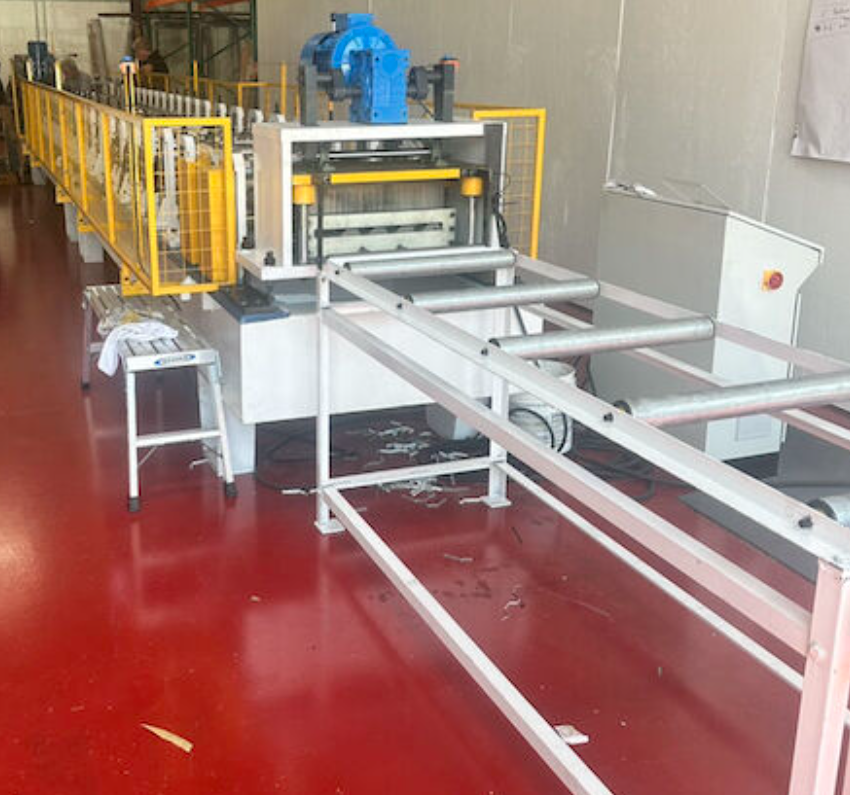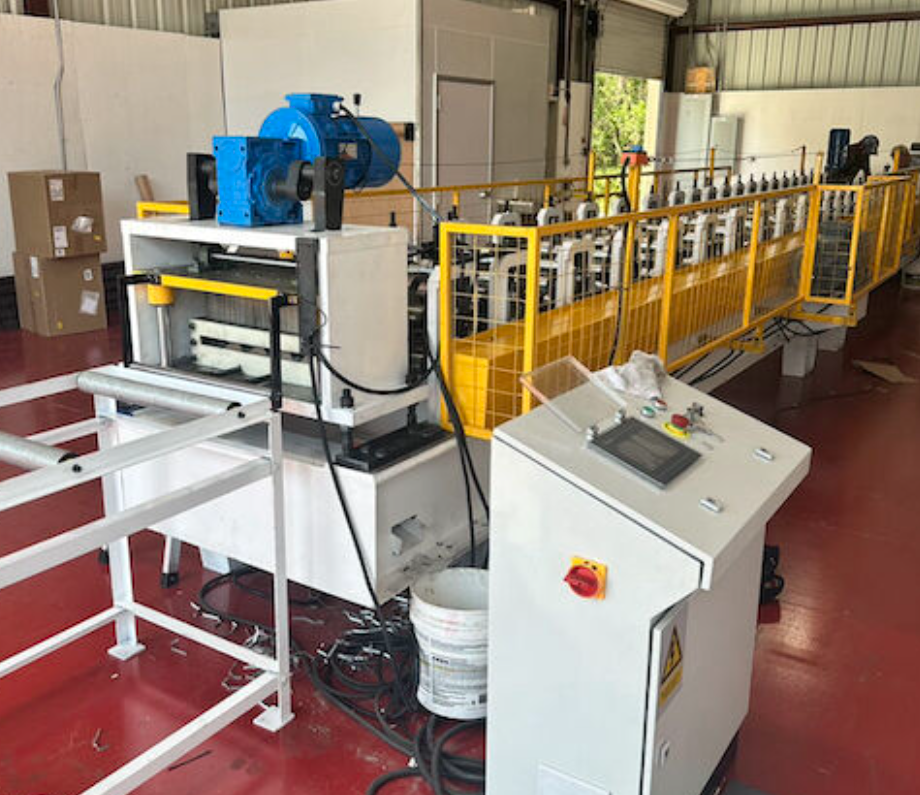To express an interest in this machine please submit the form below.

Not Sure What Machine You Need?
Select Your Profile, We'll Match It
Choose your desired profile drawing, and let Machine Matcher connect you with the best roll forming machine tailored to your needs.
Browse Profiles



Roofing sheet roll forming machines are highly specialized machines designed to produce metal roofing sheets efficiently, catering to the increasing demand for durable and versatile roofing solutions. This machine is particularly useful for construction projects across Texas, where metal roofing is popular for its resilience against weather conditions and energy efficiency.
A roofing sheet roll forming machine is designed to create various profiles of metal roofing sheets from coiled metal, including corrugated, trapezoidal, and standing seam profiles. The machine uses a series of precisely aligned rollers to shape the metal gradually without causing any deformation or loss in material strength. It’s a powerful, automated solution for high-quality roofing sheet production, suitable for manufacturers aiming to meet Texas's growing market demand.
Key Features of Roofing Sheet Roll Forming Machine:
1. What types of materials can this machine process?
The roofing sheet roll forming machine can work with various metals, including galvanized steel, aluminum, and color-coated steel, making it versatile for different project requirements.
2. How many profiles can this machine produce?
Most roofing sheet roll forming machines are designed to produce multiple profiles by changing the roller setup, which can be customized based on the desired output.
3. Is it easy to operate for beginners?
Yes, the machine is equipped with a PLC control system, making it user-friendly for both beginners and experienced operators. Most settings, including speed and length adjustments, can be controlled via the PLC interface.
4. Can this machine handle thicker sheets for high-wind areas in Texas?
Absolutely. Roofing sheet roll forming machines can typically handle sheet thicknesses up to 0.8 mm, suitable for heavy-duty roofing applications that require extra resilience against high winds and severe weather, common in Texas.
5. How often does the machine require maintenance?
Regular maintenance, including lubrication of the rollers and checks on the hydraulic cutting system, is recommended. For machines in continuous use, monthly checks are advised to ensure peak performance.
6. How long does it take to set up the machine?
Setup time depends on the complexity of the profile and any customizations required. Generally, installation and setup can take a day or two, with additional time for training operators if needed.
7. Are there any additional costs for customizing the profile?
Yes, additional costs may apply if custom rollers or profiles are required. However, this customization ensures the machine can produce roofing sheets that meet specific Texas market requirements.
8. Can I integrate this machine with an existing production line?
Yes, the machine can be integrated with other equipment, like an uncoiler, stacker, or even automated packaging systems, to streamline the production process.
9. What is the delivery timeline for a roofing sheet roll forming machine?
The delivery timeline varies based on customization requirements, but for standard machines, it usually takes 30–60 days from order confirmation to delivery.
10. Does the machine come with a warranty?
Most manufacturers provide a one-year warranty on parts and labor, with options to extend based on the customer’s requirements.
Copyright 2026 © Machine Matcher.